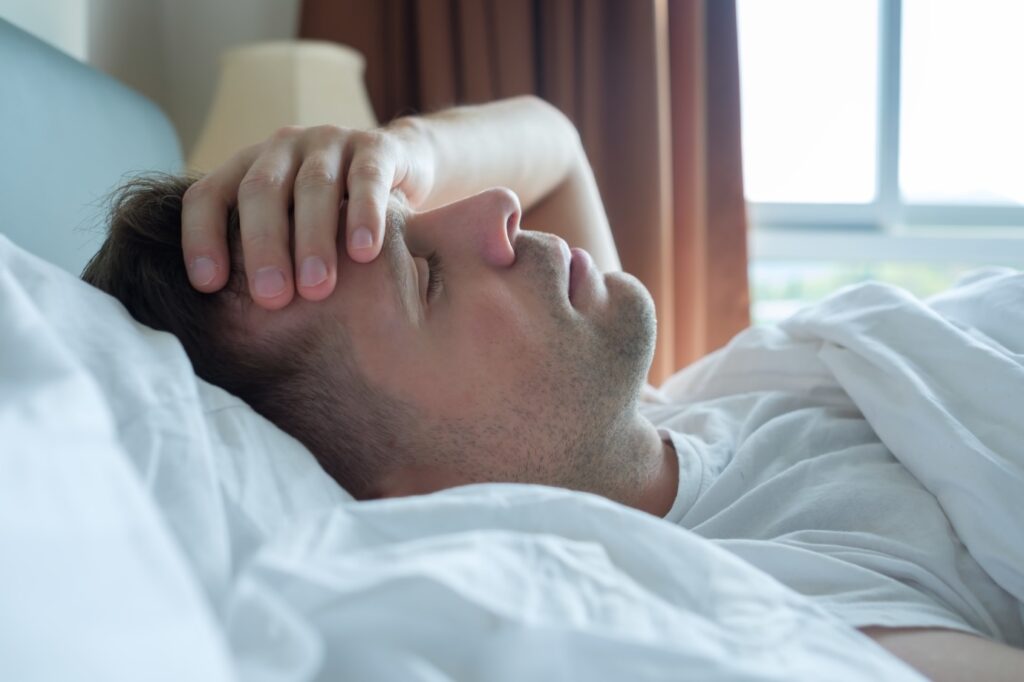Did you know that sleep can affect your mental health? If you want to learn about common sleep mistakes, we can help.
In this guide, we’ll go over tips like the importance of a regular sleeping schedule. You’ll wake up feeling refreshed and energized with our tips.
Want to learn more? Keep reading.
1. Unorganized Sleeping Habits
It’s easier to fall asleep every night and feel refreshed in the morning if you stick to a routine. You’ll need to go to bed at the same time every night and rise at the same time in the morning.
If you don’t have a sleeping routine, you could mess up your natural sleeping rhythms. An irregular sleep schedule causes fatigue and insomnia.
2. Napping for Too Long
Long naps will disrupt your sleep rhythms. If you need a nap, keep it below 30 minutes and do so before four in the afternoon.
Shorter naps after your lunch can boost energy levels.
3. Drinking Too Much Coffee
Stay away from caffeinated drinks after the middle of the day. Caffeine will stimulate your body for 12 hours after you consume it.
Make sure you restrict your caffeine in the afternoon and evening.
Herbal drinks like green tea still have a high amount of caffeine. Read the label before consuming it.
4. Negative Thinking and Stress
Stress can disrupt your sleep. If you’re stressed before bed, your body will produce chemicals that stop you from sleeping.
Clear your mind before bedtime. Try to think positive thoughts that will help you relax and fall asleep.
5. Not Prioritizing Sleep
People might stay in bed for eight hours every night but don’t get the full benefit. Sleep quality is as important. If you don’t make your sleep a priority, you won’t have good sleep hygiene.
Don’t stay up too late binge-watching Netflix. Make sure you stick to a sleep routine throughout the week and on the weekends.
Begin to relax an hour before bed. Don’t bring your cellphone to bed.
6. Sleep Deprivation and Health Effects
People don’t understand there are long-term health effects from sleep deprivation. Poor sleep has connections to heart disease, high blood pressure, and diabetes.
Sleep can also influence immune function, life expectancy, and mood disorders. People with chronic illness can suffer more depending on their sleep patterns.
To create a calm environment, and cue the body for sleep, listen to peaceful music. Read or practice some gentle stretches.
A few minutes before bed, make your room as dark as possible. Lay on your bed and try to quiet your mind.
7. Using Electronics in Bed
Cell phones allow you to connect with friends and family all over the world or read a book.
Yet, when you’re trying to prepare for bed, you want to signal that it’s time to slow down. The light waves radiating from electronics throw off our internal clock.
Our brain will use this light and signal to the body to stay awake. The brain suppresses the natural release of melatonin. Melatonin is the hormone that keeps your body clock running.
The information you get from an email or a television show will stimulate your brain.
You might read an email from your boss and start thinking about work. You don’t want to think about all these different scenarios before bed.
Instead, begin to prepare for bed. Turn electronics off 30 minutes before you go to bed.
8. Not Drawing the Blinds
We depend on sleep signals, so our body knows when to fall asleep. An essential sign of bedtime is darkness.
Work on making your bedroom as dark as possible. A thin stream of light through your window will mess up the pineal gland’s production of sleep hormones. Your sleep rhythms will get disturbed.
Make sure the blinds get closed.
9. Drinking Before Bed
Alcohol is a sedative. People often think that having a drink before bed will help them get a decent night’s sleep.
Alcohol might induce sleep, but it can impair the second half of the night. You will have an interrupted sleep that will make you feel exhausted in the morning.
10. Worrying About Falling Asleep
People who have had a few poor night’s sleep will often worry about falling asleep the next night. If you focus too much on sleep, you will begin to feel anxious and worsen the problem.
Let go of this worry by meditating before bed or writing in a journal. Instead of worrying, try to relax and let your body get back to a healthy sleep pattern. Learn about the best sleeping position for you.
11. Eating Spicy Food Before Bed
Filling up on spicy food can cause heartburn. Heartburn will affect your sleep at night. When you’re lying down, the acid reflux can worsen.
People with sleep apnea notice symptoms worsen after eating spicier food before bed.
Consuming red peppers will boost your body temperature. Core body temperature drops during sleep. Its harder for your body to make the temperature transition if you’re overheated.
You don’t have to give up spicy foods. Instead, try not to eat them three hours before bed. Eat other acidic foods like tomato sauce for lunch, so you don’t get heartburn.
Now You Know More About Common Sleep Mistakes
We hope this guide on sleep was helpful. Now that you know common sleep mistakes try to create the best sleep routine. You’ll wake up feeling refreshed each morning.
Don’t forget to keep browsing our other helpful resources on health, business, and more.

